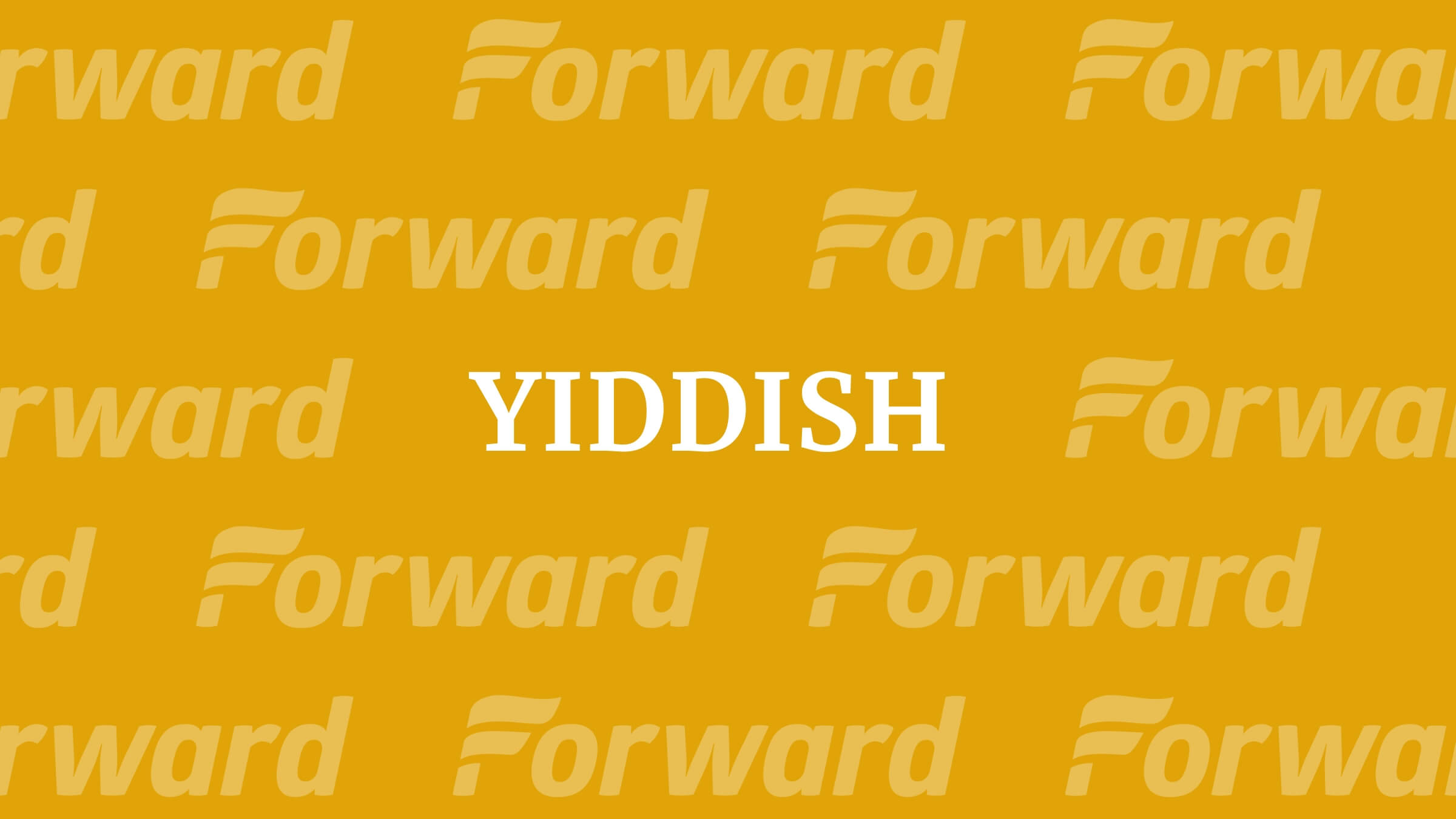Yiddish Cultural Seders Provide Alternative Way to Celebrate Exodus From Egypt

Graphic by Angelie Zaslavsky
This article originally appeared in the Yiddish Forverts.
In addition to the traditional Seders that take place on the first two nights of Passover, Yiddish-speaking New Yorkers have celebrated alternative Yiddish cultural Seders for decades.
The most well-known of them, the “Driter Seder” (Third Seder), which takes place during the intermediate days of Passover, was popularized in New York by the Workmen’s Circle. The Workmen’s Circle’s Yiddish-language Haggadah is still widely used (sometimes partially, sometimes in its entirety) at public cultural seders, and by alumni of the secular Yiddish schools and summer camps.
This year, the Congress for Jewish Culture will hold a Third Seder at the storied Montauk Club in Park Slope, Brooklyn. The seder, conducted in Yiddish, will feature both vegetarian and meat options as well as traditional gefilte fish. Participants will have a chance to sing classic Yiddish Passover songs as well as Yiddish translations of standards from the Passover liturgy. The seder will take place on April 13th at 6PM.
A week before Passover, the Yiddish Artists and Friends Actors’ Club will hold its annual Yiddish Cultural Seder, combining elements of the traditional Seder and Holocaust memorial programs. The seder, led by cantor Moishe Bear, will include a glatt kosher meal and special appearances by a variety of singers, actors and musicians. The Yiddish Cultural Seder will be held on Tuesday, April 4th, at 6:30 PM at the Sutton Place Synagogue (225 East 51st Street in Manhattan). For additional information write to [email protected].

















